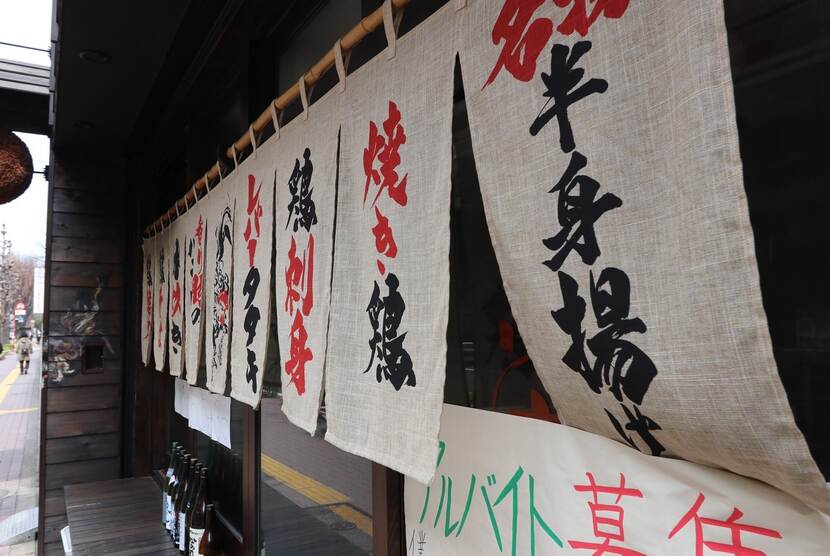Japan News Update (26 Jan. - 8 Feb. 2021)
Stay updated on the latest agricultural news in Japan, that we publish every two weeks.
By Yuki Sano
Economic impact on COVID-19
Restaurant sales in Japan in 2020 plunged 15.1% from the previous year on an all-store basis, the steepest fall since statistics began in 1994, due to the fallout from the novel coronavirus epidemic. Sales at Western-style fast-food chains rose 5.5%, while sales at other restaurants declined: sales plummeted 47.7% at Izakaya pub, 57.3% at other pubs and establishments serving alcohol, and more than 20% at family restaurants.
Source: Restaurant sales fall record 15.1 % in Japan in 2020
Japan's average monthly spending by households in 2020 fell a real 5.3% from the previous year, the largest decline on record, as people refrained from going out due to the outbreak of coronavirus pandemic, according to the Internal Affairs and Communications Ministry. By category, expenditure on drinking at bars and elsewhere outside the home plunged 53.9%, while spending on eating out was down 25.4%.
Source: Japan's 2020 average monthly household spending down record 5.3%
In Japan, dozens of foreign technical trainees have lost their jobs at companies that underperformed during the coronavirus crisis. About 80 technical trainees are still struggling to find new jobs in an unfamiliar country. The shortage of air travel due to the pandemic has severely limited the options for returning home. Without shelter or even food, many are relying on support groups
Source: Coronavirus crisis pushing many foreign trainees in Japan out of work, into poverty
Adequate ventilation has become a secret weapon for Japanese yakiniku, or "grilled-meat" restaurants in the age of pandemics. According to the Japan Food Service Association, sales increased in some months compared to 2019. They are quickly absorbing smoke and airborne pathogens through aggressive ventilation.
Source: The Secret Behind the Meat Grilling Boom in Japan
Food waste amid COVID-19
Despite Japan's well-known concept of mottainai, or "wastefulness, more than 6.5 million tons of food is wasted annually in Japan. However, there are signs of changing consumer attitudes towards sustainability. The recent disruption of the third wave of pandemics has accelerated the trend to rethink supply chains on both macro and micro scales.
Source: How COVID-19 is forcing us to re-examine food waste
Food vendors and producers who have not been able to do business with their usual customers, such as restaurants and bars, are looking for new sales channels to connect directly with consumers. One seafood wholesaler started a mobile sales service in central Tokyo. It is the first attempt to sell directly to customers instead of receiving orders from luxury hotels and restaurants.
Source: Food suppliers find ways to survive amid pandemic
New technology at agricultural production and restaurant
A consortium consisting of the University of Tokyo, Yanmar Agri, Denso, Shizuoka Prefecture, and JA Topia Hamamatsu presented a fully automated cabbage harvester using artificial intelligence. The harvester uses cameras, infrared rays, and the Global Navigation Satellite System (GNSS) to recognize the cabbage location. This harvester eliminates the need for a driver and allows a single person to harvest the cabbage.
Source: Automation cabbage harvester with AI – developed by University of Tokyo, Yanmar agribusiness, denso, Shizuoka pref., and JA.
In February 2020, JA introduced "WinActor," a robotic process automation (RPA) system developed by NTT Group, to improve business efficiency. JA in Tottori Prefecture reduced administrative work in the livestock department by about 20 hours a year by introducing RPA. The labor-saving in clerical work has made it easier for JA staff to secure time to visit farmers.
Source: JA introduce Robotic Process Automation system to livestock production division in Tottori prefecture.
Companies in Japan and other Asian countries use more robots and machines than ever before to reduce and replace human contact during the lingering COVID-19 epidemic. One Japanese restaurant chain introduced service robots on a trial basis in October at its newly opened yakiniku chain.
Source: Pandemic accelerates Japanese companies' embrace of robots
Japan Whale hunting
The death of the young mammal has again revealed the divide between Japan and the wider world when it comes to whale hunting. The end of the mink this time, as in previous cases, was considered "bycatch" - a whale that no one tried to catch but happened to swim into the wrong place at the wrong time. "Catching whales in Japan is not bycatch," said a marine scientist with Humane Society International (HSI).
Source: Japan whale hunting: 'By-catch' rule highlighted after minke death
Import and export of food in Japan
Twenty-eight Japanese agricultural and marine products will be registered as Geographical Indications (GI) under the EU-Japan Economic Partnership Agreement on February 1. The brands include "Echizen Gani," which refers to snow crab caught off the coast of Echizen in Fukui Prefecture, and "Iburi Gako," a smoked, pickled radish specialty from Akita Prefecture. It will be the first additional GI registration under the EU-Japan Trade Agreement, which came into effect in February 2019.
Source: "Echizen Gani," "Iburigakko" among New GIs under Japan-EU EPA
Imports of bananas and training supplies are on the rise in the wake of the coronavirus in Japan, an analysis of 2020 trade statistics shows. As more people adopted a stay-at-home lifestyle in the wake of the emergency, people can enjoy foods at home became more popular. Perhaps due to household refrigerators' limited capacity, household frozen food imports increased only 1.6 times over the previous year. In 2020, Japan's exports as a whole fell 11.1% from the prior year, while imports fell 13.8%.
Source: Imports of bananas up, tapioca down as coronavirus sways trade in Japan
